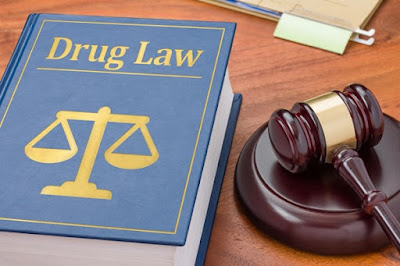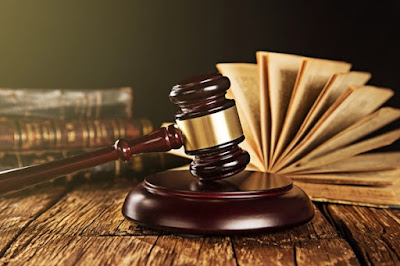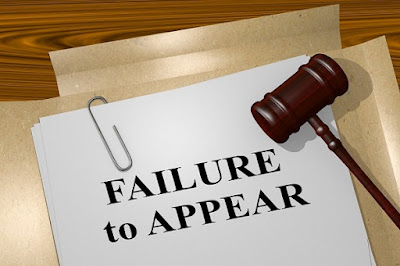Thursday, 24 October 2024
Understanding Peace Bonds in Criminal Cases
Friday, 16 August 2024
Failure to Remain at the Scene: When an Accident is No Accident
Failing to stop at the scene of an accident can result in serious legal consequences, including criminal or provincial charges under the Highway Traffic Act. Understanding the steps to take if someone fails to stop after an accident is crucial for protecting your rights and ensuring justice. Learn more about the necessary actions to take in such situations read more here
Sunday, 11 August 2024
Murder by Failing the Duty to Protect
A mother in Ontario was found guilty of second-degree murder after failing to intervene and prevent her partner from fatally assaulting her daughter. The conviction highlights issues of criminal recklessness and the legal duty to protect a child from harm. The case underscores the severe consequences of neglecting this duty and the moral and legal responsibilities of caregivers read more here
Friday, 12 July 2024
Failing to Stop or Remain at the Scene of an Accident
After a crash, you might be unsure of what to do next. The Criminal Code of Canada and provincial traffic laws require drivers to stay at the scene. Failing to meet your legal obligations as a driver can lead to severe legal consequences. We’ll cover the details in this post read more here
Wednesday, 29 May 2024
How to Successfully Defend Uttering Threats Charges in Toronto
Tuesday, 28 May 2024
Complexities of Pleading Self-Defence
Friday, 24 May 2024
What You Need to Know About the New Gun Laws in Canada
Sunday, 19 May 2024
What is the Definition of Criminal Harassment According to Canadian Law?
Wednesday, 15 May 2024
What Are the Charges for Possession of a Controlled Substance, and What Can You Do?
Thursday, 9 May 2024
Summary Offence vs Indictable Offence: What’s the Difference?
Friday, 3 May 2024
What is the Minimum Sentence for Sexual Assault in Canada
Monday, 29 April 2024
Partner Assault Response Program
Thursday, 4 April 2024
What You Need to Know About Impaired Driving Penalties
Are you dealing with a DUI charge in Toronto, Ontario? If that's the case, you may encounter severe consequences that could restrict your freedom and impose significant financial and time burdens. RGZ Law provides essential information about impaired driving penalties below read more here
Friday, 29 March 2024
What Are Bail Conditions and How Difficult Can They Be?
Friday, 15 March 2024
How Does an Assault Become an Aggravated Assault?
Enhancing one's comprehension of the Criminal Code of Canada empowers individuals to be better informed about legal matters. Whether navigating charges or seeking to deepen understanding, we provide the necessary information. Today's focus is on distinguishing between simple assault and aggravated assault, exploring how the former may escalate into the latter read more here
Monday, 11 March 2024
Can My Case Be Overruled in Court?
Although the Canadian justice system endeavors to deliver fair and equitable judgments, instances arise where this may not be the case. In situations where it appears that the accused has little recourse, some ponder the possibility of their case being overturned in court. Fortunately, there exists an appeals process that permits convicted individuals to contest an original decision if there are grounds to believe it was unjust. The appeal process is not designed for those simply dissatisfied with their court ruling; rather, it aims to identify trial errors or misjudgments. Following a trial, a specified timeframe allows the convicted party to request an appeal and challenge the initial decision read more here
Thursday, 7 March 2024
What Happens When a Youth Breaks the Law?
Every parent dreads the prospect of their child facing
charges or getting arrested by the police. Gaining insight into the youth
criminal justice process is crucial for parents to comprehend how they can
effectively safeguard their children when they become entangled in the youth
criminal justice system. Whether you aim to proactively prevent criminal
offenses or seek guidance after your child has been charged with a crime, this
guide is designed to assist you read more here
Wednesday, 28 February 2024
What Are My Rights When Dealing with the Police?
Sunday, 25 February 2024
Understanding Your Right to Speak With a Lawyer After You Are Arrested
Sunday, 11 February 2024
Protecting Your Privacy: When Can Police Enter Your Home?
In a society that values privacy
and personal space, the sanctity of one’s home is paramount. But what happens
when the police come knocking at your door? Understanding when and under what
circumstances law enforcement can enter your home is essential knowledge for
every citizen. This article will delve into the legal framework surrounding
when police can enter your home in Canada, providing the information you need
to protect your rights read more
here
Friday, 2 February 2024
Understanding the Consequences of a Fail to Appear in Court Charge
Have you ever wondered
what could happen if you fail to appear in court when required? A
Fail-to-appear-in-court Court Charge, often abbreviated as “FTA,” is a serious
legal matter with significant consequences. In this article, we will delve into
the details of this charge, exploring what it means, why it’s crucial to take
it seriously, and what you should do if you find yourself facing such a
situation. At RGZ Law in Toronto, we understand the complexities of the Canadian
legal system, and we’re here to guide you through the intricacies of a Fail to
Appear charge read
more here
Thursday, 1 February 2024
Finding the Best Criminal Lawyer
Are you in a situation
where you require the services of a criminal lawyer? The importance of choosing
the right attorney cannot be overstated. Your freedom, reputation, and future
are on the line, and the outcome of your case largely depends on the skills and
expertise of your legal representation. Finding the right criminal lawyer is
not just a matter of luck; it requires careful consideration and research. In
this article, we will guide you through finding the right criminal lawyer to
defend your case and secure the best possible outcome read more here
Monday, 22 January 2024
How to Beat DUI Charges in Ontario?
Being
arrested and charged with driving under the influence (DUI) in Ontario can jeopardize
your driving privileges, finances, employment, and reputation. These charges
should not be taken lightly. However, with an experienced criminal defence lawyer on your side, it is possible to beat drunk
driving allegations. Here are key strategies to give you the best chance of
avoiding a DUI conviction in Ontario read
more here
What is the Penalty for Making False Criminal Accusations
False
accusations can leave innocent people facing the loss of their reputation, jail
time, and legal liability. So, if someone has made false claims against you or
if you want to learn more about the penalties for making false criminal
accusations, then continue reading on read
more here
Extradition Exceptions: How Can Extradition Be Challenged in Canada?
What happens when a Canadian citizen is accused of a crime in another country? The extradition process requires Canada to deport the defendants to the country where the crime took place. However, certain instances may leave defendants a loophole.
When and how can extradition be challenged in Canada?
Find out in the guide below read
more here
























